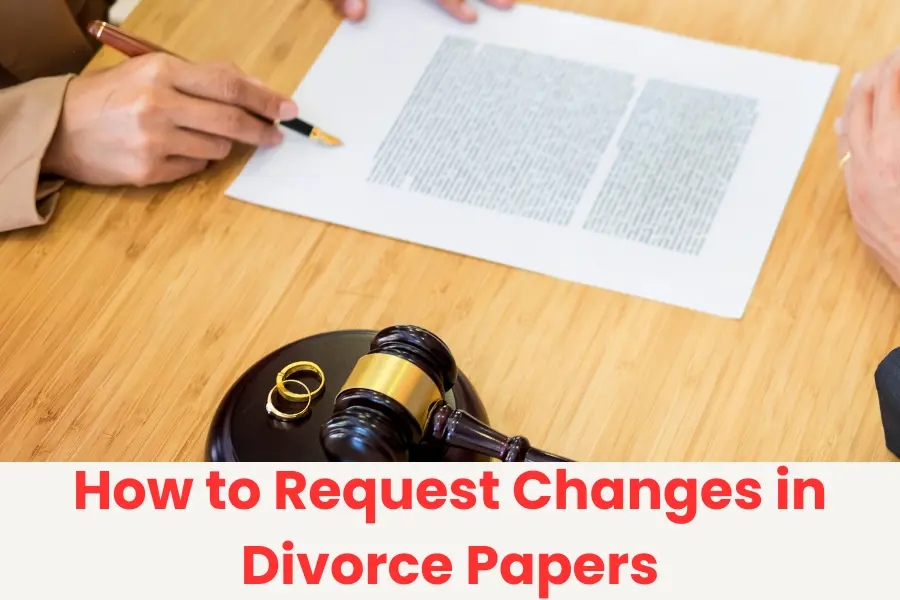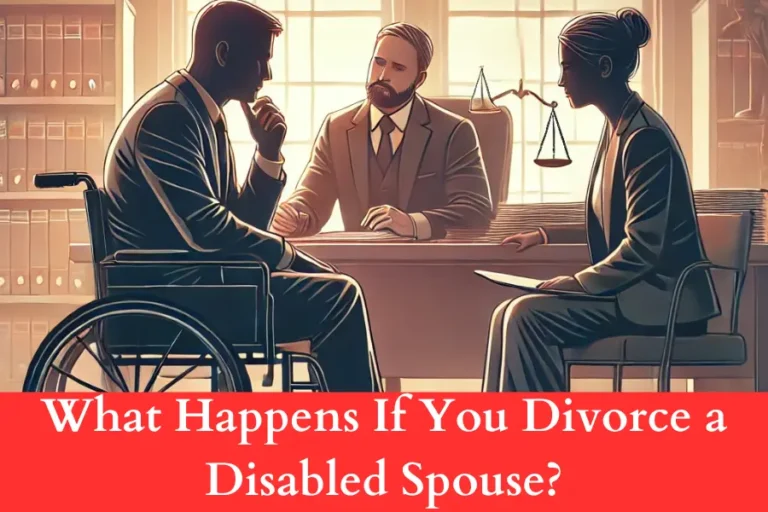Can Signed Divorce Papers Be Changed? What to Know
It’s natural to wonder, “Once divorce papers are signed, can they be changed?” The short answer is yes, but there are rules to follow. Courts understand that life is unpredictable. Changes to custody, support, or visitation are possible if you can prove the need for an update.
But it’s not always simple, and there are steps you need to take to make it happen.
Don’t stress; this guide explains everything you need to know.
Key Points
- Signed divorce papers can sometimes be changed if life circumstances shift.
- Mutual agreement with your ex is the simplest way to update terms.
- Filing a motion is necessary when both parties don’t agree.
- Courts require solid evidence to approve requested changes.
- Child custody, support, and visitation terms are commonly modified.
- Property division is harder to change unless fraud or mistakes occurred.
- Appeals are for fixing errors in the original court decision.
- Legal help makes navigating the process easier and more effective.
Once Divorce Papers Are Signed, Can They Be Changed?

Yes, divorce papers can be changed even after they’re signed, but only in specific situations. Courts understand that life isn’t always predictable. Changes like losing a job, moving to a new city, or a child needing something different might make adjustments necessary.
How Can You Modify Specific Provisions?
Certain parts of a divorce agreement—like child custody, support payments, or visitation—can be updated. But there has to be a valid reason. For example, if one parent needs to relocate for a job, the current visitation schedule may no longer work.
Similarly, a child’s needs might change due to health issues or education requirements.
Courts focus on the best interests of the child, so if you can prove the changes are necessary and beneficial, they’re more likely to approve.
What About Financial Support?
Big financial changes, like losing a job or facing unexpected medical bills, could impact alimony or child support. If you’re paying support and your income drops, you can ask the court to lower your payments.
But you’ll need evidence—like recent pay stubs, tax records, or medical expenses—to prove that you can’t afford the original amount.
Does Mutual Agreement Make It Easier?
Absolutely! If both you and your ex agree on the changes, the process is much simpler. You can jointly submit your updated terms to the court. Judges usually approve mutual agreements quickly, as long as they’re fair and don’t negatively impact the children.
Can You Change Property Division After the Divorce?
In most cases, yes. Property division is considered final once the divorce is complete. However, there are exceptions. If one party hid assets—like a secret savings account or undeclared property—you can ask the court to revisit the division.
Remember: Courts take dishonesty very seriously.
What If There Was a Mistake?
Mistakes happen during divorce proceedings, especially when valuing assets or dividing complex finances. If you discover a significant error, like an undervalued property or overlooked account, you can request a correction. You’ll need to provide clear evidence of the mistake for the court to consider reopening the case.
Can Both Parties Agree to Change the Division?
Yes, but it requires cooperation. If you and your ex-spouse decide together to adjust the division—like selling a shared home instead of one person keeping it—you can ask the court to approve the change. Judges are usually open to fair, agreed-upon modifications.
Can You Appeal the Divorce Decree?
Appealing a divorce decree means asking a higher court to review the original decision. This isn’t about being unhappy with the outcome; it’s about correcting errors.
For instance, if the judge applied the law incorrectly or didn’t consider important evidence, you might have grounds to appeal.
How Do You Start the Appeal Process?
To appeal, you must file legal paperwork that outlines the error and explains why it affected the outcome. Keep in mind, appeals aren’t quick, and deadlines are strict—usually within 30 days of the original decision. This process focuses on legal errors, not on re-arguing the entire divorce.
Are Appeals Worth It?
Appeals are tough to win, but they can be worth it if the error significantly impacts your life. For example, if spousal support was calculated incorrectly or a custody decision didn’t follow the law, an appeal might be your best option. Hiring an experienced lawyer is crucial here, as appeals are complex and require expertise.
How to Request Changes in Divorce Papers

Changing divorce papers might sound complicated, but it’s often necessary when life changes. Whether it’s about child custody, support payments, or anything else, there are ways to request adjustments.
Sometimes, both sides agree on the changes, while other times, the court needs to get involved.
Mutual Agreement
If you and your ex agree on the changes, this is the simplest way to update your divorce papers. For example, let’s say you both decide to tweak a custody schedule because of a new work situation or school timings. You can sit down, discuss the changes, and create an amended agreement together.
Once that’s done, you submit it to the court for approval.
Courts like it when both parties agree because it avoids conflict and saves everyone time. Judges typically approve these changes quickly as long as they seem fair and don’t harm anyone involved, especially children. It’s the easiest and least stressful option for making adjustments.
When drafting the new agreement, be as detailed as possible. For instance, if you’re changing child support amounts, make sure the exact new figure is included along with the start date. If you’re adjusting visitation, write out the new schedule clearly. The more precise you are, the smoother things will go.
Filing a Motion
If you and your ex don’t see eye to eye, you might have to ask the court to step in. This is done by filing a motion—a formal request for the court to make a decision.
Let’s say you want more time with your kids or need to adjust alimony because of financial struggles, but your ex disagrees. Filing a motion gives you the chance to explain your situation to the judge.
To succeed, you’ll need solid proof to back up your request. For example, if you’re asking for lower support payments because you lost your job, bring evidence like termination letters or bank statements.
If you’re requesting more custody time, show how it benefits the kids—like being closer to their school or having more stability.
Once your motion is filed, the court will review it and might hold a hearing where both sides can present their case. Judges consider everything carefully, especially when children are involved. They’ll aim for a decision that’s fair and practical for everyone.
Legal Assistance
Having a lawyer by your side can make the process much easier. Divorce modifications involve legal procedures that can be tricky to navigate on your own. A family law attorney knows the rules and can guide you, whether it’s drafting a mutual agreement or preparing for a court hearing.
If you’re filing a motion, a lawyer can help you gather strong evidence and present your case effectively. They know what judges look for and can ensure you don’t miss any important details. This expertise can make a big difference, especially if your ex is pushing back on the changes.
Even if you and your ex agree, consulting a lawyer is still a good idea. They can review the updated agreement to make sure it’s legally sound and won’t cause problems later. It’s a small step that can save a lot of headaches in the future.
That’s all.
Conclusion
Changing signed divorce papers is possible, but it takes the right approach. Here’s a recap:
- Mutual agreements are the easiest way to make changes.
- Filing a motion helps when the other party disagrees.
- Legal assistance ensures your case is handled properly.
- Strong evidence is critical for successful changes.
- Courts focus on what’s fair and in the best interest of everyone.
Remember, life isn’t set in stone, and courts understand that.






